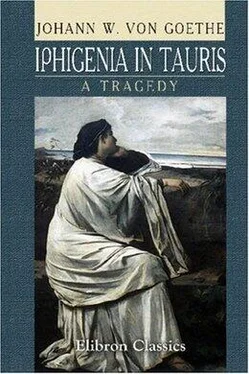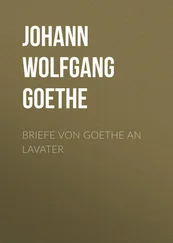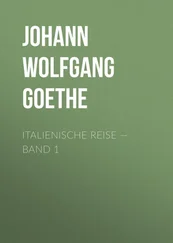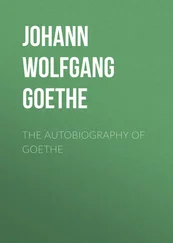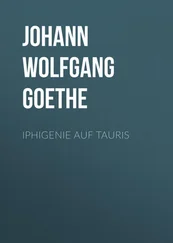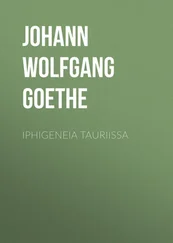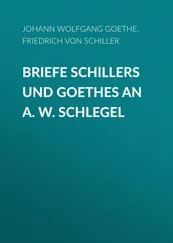THOAS.
A word momentous calmly hast thou spoken.
Him nam'st thou ancestor whom all the world
Knows as a sometime favourite of the gods?
Is it that Tantalus, whom Jove himself
Drew to his council and his social board?
On whose experienc'd words, with wisdom fraught,
As on the language of an oracle,
E'en gods delighted hung?
IPHIGENIA.
'Tis even he;
But gods should not hold intercourse with men
As with themselves. Too weak the human race,
Not to grow dizzy on unwonted heights.
Ignoble was he not, and no betrayer;
To be the Thunderer's slave, he was too great:
To be his friend and comrade,—but a man.
His crime was human, and their doom severe;
For poets sing, that treachery and pride
Did from Jove's table hurl him headlong down,
To grovel in the depths of Tartarus.
Alas, and his whole race their hate pursues.
THOAS.
Bear they their own guilt, or their ancestors'?
IPHIGENIA.
The Titan's mighty breast and nervous frame
Was his descendant's certain heritage;
But round their brow Jove forg'd a band of brass.
Wisdom and patience, prudence and restraint,
He from their gloomy, fearful eye conceal'd;
In them each passion grew to savage rage,
And headlong rush'd uncheck'd. The Titan's son,
The strong–will'd Pelops, won his beauteous bride,
Hippodamia, child of OEnomaus,
Through treachery and murder; she ere long
Bore him two children, Atreus and Thyestes;
With envy they beheld the growing love
Their father cherish'd for a first–born son
Sprung from another union. Bound by hate,
In secret they contrive their brother's death.
The sire, the crime imputing to his wife,
With savage fury claim'd from her his child,
And she in terror did destroy herself—
THOAS.
Thou'rt silent? Pause not in thy narrative!
Do not repent thy confidence—say on!
IPHIGENIA.
How blest is he who his progenitors
With pride remembers, to the list'ner tells
The story of their greatness, of their deeds,
And, silently rejoicing, sees himself
Link'd to this goodly chain! For the same stock
Bears not the monster and the demigod:
A line, or good or evil, ushers in
The glory or the terror of the world.—
After the death of Pelops, his two sons
Rul'd o'er the city with divided sway.
But such an union could not long endure.
His brother's honour first Thyestes wounds.
In vengeance Atreus drove him from the realm.
Thyestes, planning horrors, long before
Had stealthily procur'd his brother's son,
Whom he in secret nurtur'd as his own.
Revenge and fury in his breast he pour'd,
Then to the royal city sent him forth,
That in his uncle he might slay his sire,
The meditated murder was disclos'd,
And by the king most cruelly aveng'd,
Who slaughter'd, as he thought, his brother's son.
Too late he learn'd whose dying tortures met
His drunken gaze; and seeking to assuage
The insatiate vengeance that possess'd his soul,
He plann'd a deed unheard of. He assum'd
A friendly tone, seem'd reconcil'd, appeas'd.
And lur'd his brother, with his children twain,
Back to his kingdom; these he seiz'd and slew;
Then plac'd the loathsome and abhorrent food
At his first meal before the unconscious sire.
And when Thyestes had his hunger still'd
With his own flesh, a sadness seiz'd his soul;
He for his children ask'd,—their steps, their voice,
Fancied he heard already at the door;
And Atreus, grinning with malicious joy,
Threw in the members of the slaughter'd boys.—
Shudd'ring, O king, thou dost avert thy face:
So did the sun his radiant visage hide,
And swerve his chariot from the eternal path.
These, monarch, are thy priestess' ancestors,
And many a dreadful fate of mortal doom,
And many a deed of the bewilder'd brain,
Dark night doth cover with her sable wing,
Or shroud in gloomy twilight.
THOAS.
Hidden there
Let them abide. A truce to horror now,
And tell me by what miracle thou sprang'st
From race so savage.
IPHIGENIA.
Atreus' eldest son
Was Agamemnon; he, O king, my sire:
But I may say with truth, that, from a child,
In him the model of a perfect man
I witness'd ever. Clytemnestra bore
To him, myself, the firstling of their love,
Electra then. Peaceful the monarch rul'd,
And to the house of Tantalus was given
A long–withheld repose. A son alone
Was wanting to complete my parent's bliss;
Scarce was this wish fulfill'd, and young Orestes,
The household's darling, with his sisters grew,
When new misfortunes vex'd our ancient house.
To you hath come the rumour of the war,
Which, to avenge the fairest woman's wrongs,
The force united of the Grecian kings
Round Ilion's walls encamp'd. Whether the town
Was humbl'd, and achiev'd their great revenge
I have not heard. My father led the host
In Aulis vainly for a favouring gale
They waited; for, enrag'd against their chief,
Diana stay'd their progress, and requir'd,
Through Chaleas' voice, the monarch's eldest daughter.
They lur'd me with my mother to the camp,
And at Diana's altar doom'd this head.—
She was appeas'd, she did not wish my blood,
And wrapt me in a soft protecting cloud;
Within this temple from the dream of death
I waken'd first. Yes, I myself am she;
Iphigenia,—I who speak to thee
Am Atreus' grandchild, Agamemnon's child,
And great Diana's consecrated priestess.
THOAS.
I yield no higher honour or regard
To the king's daughter than the maid unknown;
Once more my first proposal I repeat;
Come, follow me, and share what I possess.
IPHIGENIA.
How dare I venture such a step, O king?
Hath not the goddess who protected me
Alone a right to my devoted head?
'Twas she who chose for me this sanctuary,
Where she perchance reserves me for my sire,
By my apparent death enough chastis'd,
To be the joy and solace of his age.
Perchance my glad return is near; and how
If I, unmindful of her purposes,
Had here attach'd myself against her will?
I ask'd a signal, did she wish my stay.
THOAS.
The signal is that still thou tarriest here.
Seek not evasively such vain pretexts.
Not many words are needed to refuse,
By the refus'd the
no
alone is heard.
IPHIGENIA.
Mine are not words meant only to deceive;
I have to thee my inmost heart reveal'd.
And doth no inward voice suggest to thee,
How I with yearning soul must pine to see
My father, mother, and my long–lost home?
Oh let thy vessels bear me thither, king!
That in the ancient halls, where sorrow still
In accents low doth fondly breathe my name,
Joy, as in welcome of a new–born child,
May round the columns twine the fairest wreath.
Thou wouldst to me and mine new life impart.
THOAS.
Then go! the promptings of thy heart obey;
Despise the voice of reason and good counsel.
Be quite the woman, sway'd by each desire,
That bridleless impels her to and fro.
When passion rages fiercely in her breast,
No sacred tie withholds her from the wretch
Who would allure her to forsake for him
A husband's or a father's guardian arms;
Extinct within her heart its fiery glow,
The golden tongue of eloquence in vain
With words of truth and power assails her ear.
IPHIGENIA.
Remember now, O king, thy noble words!
My trust and candour wilt thou thus repay?
Thou seem'dst, methought, prepar'd to hear the truth.
Читать дальше
